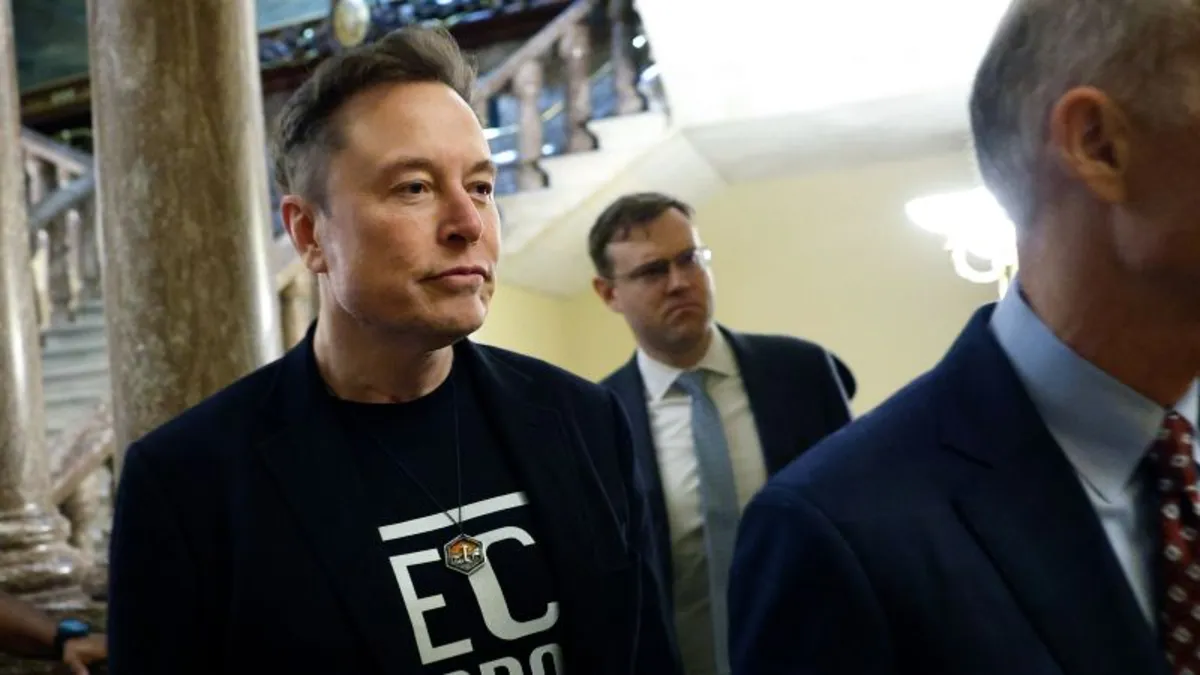
On Wednesday, a significant meeting took place as Republican lawmakers sought to engage tech billionaire Elon Musk in discussions about slashing federal spending and reducing the federal workforce. These private meetings signal the GOP's intent to assert its influence over government spending in the coming months. Musk shared insights on how the Department of Government Efficiency (DOGE) is working to implement cuts across federal agencies, emphasizing a collaborative approach with Congress.
During meetings with both Senate and House Republicans, Musk outlined the DOGE's strategy for implementing cuts. Lawmakers have been advocating for more direct communication with Musk regarding the specific programs DOGE intends to target and the overall extent of the proposed cuts. Historically, congressional Republicans have aligned closely with the initiatives of President Donald Trump and Musk regarding the reshaping of the federal government, while cautiously balancing their critiques.
To facilitate greater collaboration, Musk shared his cell phone number with GOP senators during the closed-door meetings, expressing his desire for more cooperative engagement. House Speaker Mike Johnson noted that he and Musk have been in regular contact, almost daily, to discuss ongoing initiatives.
In his discussions with House Republicans, Musk attempted to clarify his role in the widespread job reductions happening in the federal government, attributing the responsibility to federal department heads. He stated that recent announcements, including plans to cut over 70,000 jobs at the Department of Veterans Affairs, were not solely DOGE decisions. Musk emphasized that decisions regarding employee productivity and departmental cuts rest with the individual departments.
Moreover, Musk acknowledged to lawmakers that DOGE has made errors in its approach to federal freezes and firings, admitting, “there’s going to be mistakes along the way.” He assured them that any identified mistakes would be corrected promptly.
During a prolonged discussion with senators, Sen. Rand Paul emphasized the necessity of moving Musk's proposed cuts through Congress via rescissions packages. This legislative maneuver allows for the retraction of previously appropriated funds, requiring only a simple majority in both the GOP-led House and Senate. However, the challenge remains that voting for these cuts could be politically unpopular among constituents.
“In order to make it real, it needs to come back in the form of a rescission package,” Paul stated, urging congressional Republicans to formalize Musk's proposed changes into legislation. Sen. Lindsey Graham echoed this sentiment, highlighting the importance of integrating DOGE's work into the legislative process.
As pressure mounts on Republicans to respond to constituents' concerns regarding federal cuts, some lawmakers have advocated for a more humane approach to the treatment of federal workers. Rep. Dan Newhouse remarked that the meeting aimed to foster more thoughtful engagement with Musk about the implications of DOGE's initiatives.
Despite the growing tensions surrounding the federal cuts, many Republican members are hesitant to publicly criticize Musk. As one lawmaker noted, “praise in public, criticize behind closed doors” has become the prevailing strategy, as most members seek to communicate their concerns privately with the White House.
As discussions evolve, the Republican Party faces the challenge of balancing their support for Musk's initiatives while addressing the legitimate concerns of their constituents regarding federal workforce impacts. The ongoing dialogue between congressional leaders and Musk will be crucial in shaping the future of federal spending and workforce policies.